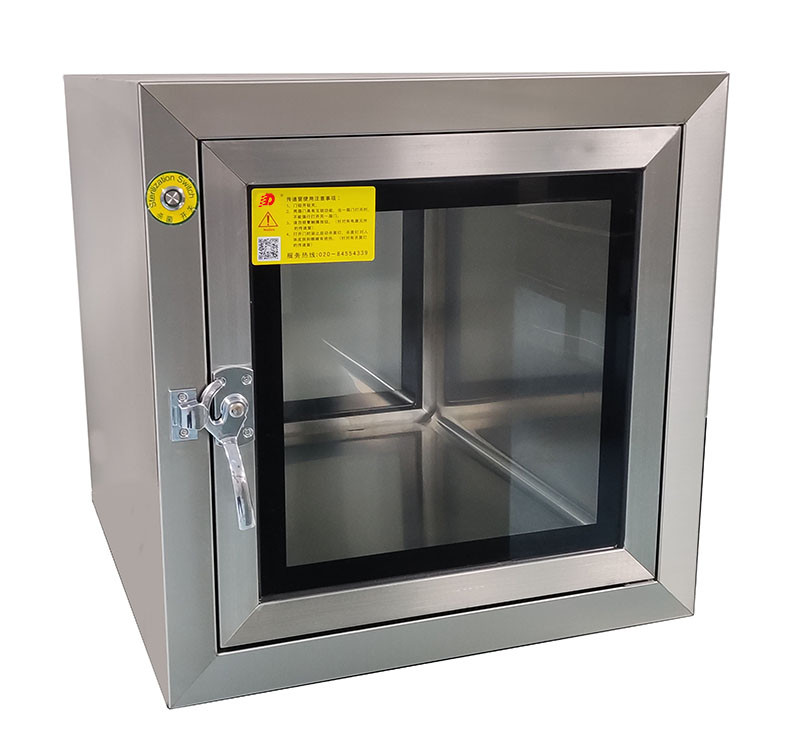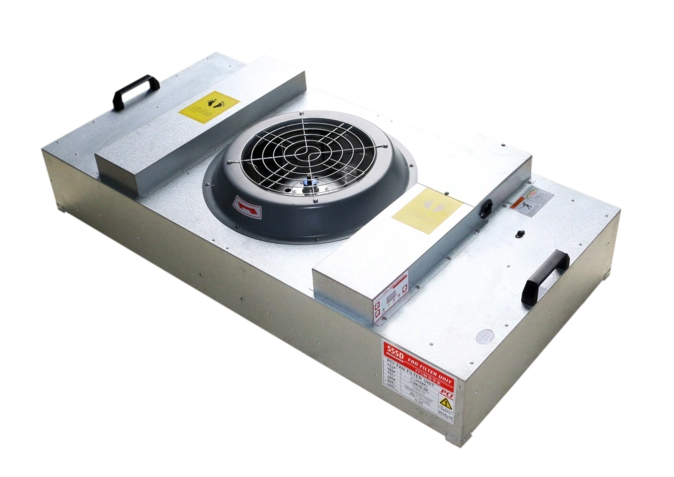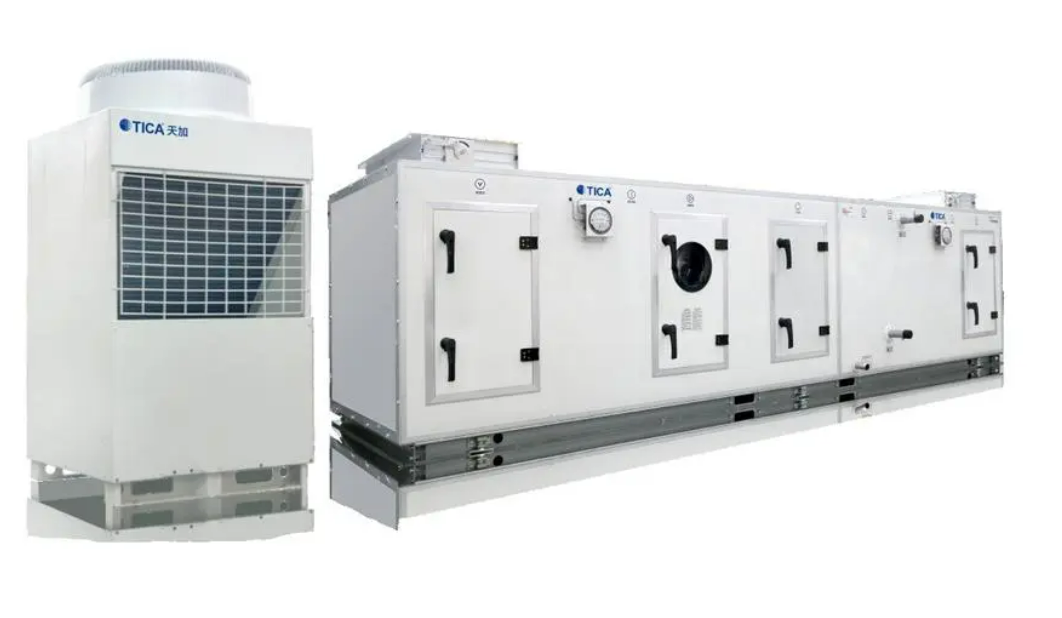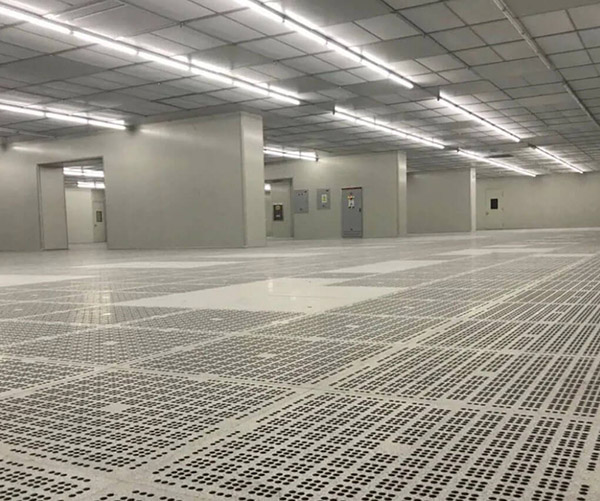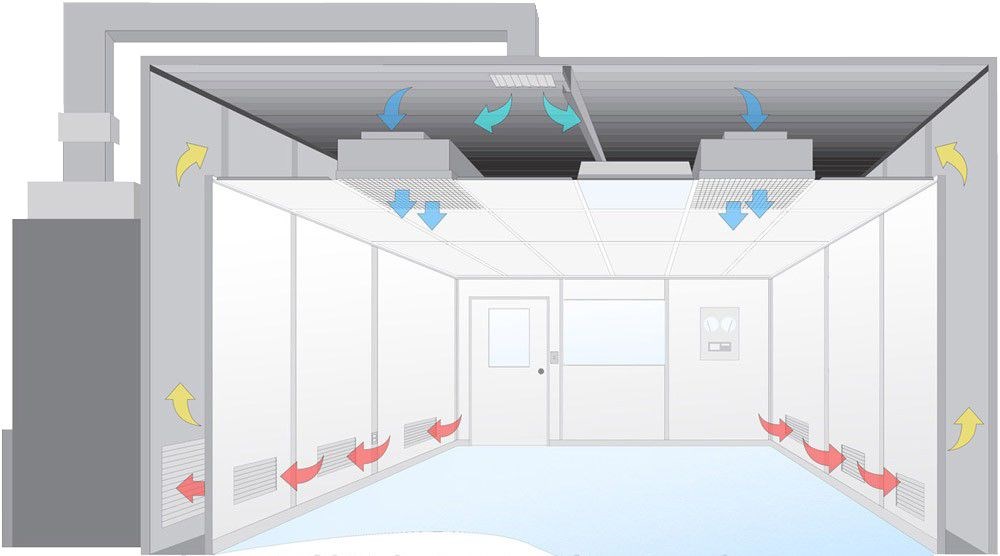The primary differences between DC fan Filter Fan Units (FFUs) and AC fan FFUs revolve around their power supply, operational characteristics, energy efficiency, noise levels, and control features. Here’s a breakdown of the key distinctions:
What is the difference between DC fan FFU and AC fan FFU?

1. Power Supply
DC Fan FFU: Operates on direct current (DC) electricity. DC fans are powered by batteries or DC power sources, which can be integrated into existing systems or standalone.
AC Fan FFU: Operates on alternating current (AC) electricity, typically supplied by standard electrical outlets.
2. Energy Efficiency
DC Fan FFU: Generally more energy-efficient than AC fans. They consume less power for the same airflow, reducing operational costs over time. Their efficiency is particularly pronounced at lower speeds where they can adjust their power consumption dynamically.
AC Fan FFU: While AC fans can be efficient, they often consume more energy compared to DC fans, especially when running at lower speeds, because they do not have the same level of speed control efficiency.
3. Noise Levels
DC Fan FFU: Typically quieter than AC fan units. The design of DC motors allows for smoother operation, which results in lower noise levels, making them ideal for sensitive environments like cleanrooms and laboratories.
AC Fan FFU: Can be noisier, especially at higher speeds, due to the nature of AC motors and their operation. However, the noise level can vary widely based on the design and quality of the fan.
4. Control Features
DC Fan FFU: Often equipped with advanced control features, including variable speed controls, which allow users to adjust airflow according to real-time needs. This can lead to better air quality management and energy savings.
AC Fan FFU: Generally offers more basic speed controls, such as fixed speeds or simple variable controls. Advanced features may be available, but they tend to be less common compared to DC models.
5. Speed Control and Performance
DC Fan FFU: Provides precise speed control, enabling performance adjustments based on air quality requirements. This flexibility allows for optimal air filtration under varying conditions.
AC Fan FFU: Speed control options may be limited, and the performance can be less adaptable to changing environmental needs compared to DC fans.
6. Durability and Lifespan
DC Fan FFU: DC fans generally have a longer lifespan due to less wear and tear from their operational characteristics. They also experience less heat generation, which can contribute to longevity.
AC Fan FFU: While AC fans can also be durable, they may not last as long as DC fans under continuous operation, especially in high-demand environments.
7. Cost
DC Fan FFU: Generally, DC fan FFUs tend to be more expensive upfront due to advanced technology and components, but they may offer long-term savings through lower energy consumption and maintenance costs.
AC Fan FFU: Typically less expensive initially, but potentially higher operational costs due to energy consumption and maintenance needs.
In summary, the choice between a DC fan FFU and an AC fan FFU depends on the specific application requirements, including energy efficiency, noise considerations, control features, and budget. DC fan FFUs are often preferred for environments where energy efficiency and low noise are critical, while AC fan FFUs may be suitable for applications where cost is a major concern and operational conditions are stable.
Advantages of DC Fan FFU

1. Energy Efficiency: DC fan FFUs are designed to consume less power compared to AC fan units, resulting in significant energy savings, especially in applications requiring continuous operation.
2. Quiet Operation: The design and technology of DC fans contribute to quieter performance, making them ideal for sensitive environments like cleanrooms and laboratories where noise levels are critical.
3. Advanced Control Features: DC fan FFUs offer precise speed control and adaptability to changing airflow requirements, allowing for better air quality management and optimization of energy usage.
Design of DC Fan FFU
DC fan FFUs are typically more compact and lightweight than their AC counterparts, making them easier to integrate into various installations without requiring extensive structural support.
The design often incorporates advanced aerodynamic features, such as specialized fan blades and housing, which maximize airflow while minimizing turbulence. This results in better filtration efficiency and more consistent air distribution. Additionally, the technology used in DC fans allows for smoother operation at varying speeds, enhancing performance and longevity. With options for variable speed control, users can tailor airflow based on real-time needs, leading to optimal energy use. The overall design ensures that DC fan FFUs are not only efficient but also reliable in maintaining Clean air environments.
Noise Level of DC Fan FFU
DC fan FFUs are engineered for low noise, making them suitable for environments where noise pollution must be minimized. DC fan technology significantly reduces operational noise due to its smooth motor design and lower RPM capabilities. Unlike traditional AC fans, DC fans operate effectively at lower speeds, which inherently produces less noise. This feature is particularly advantageous in sensitive environments such as laboratories, hospitals, and cleanrooms, where excessive noise can disrupt operations or impact individuals' comfort levels. The quiet operation of DC fan FFUs not only enhances user comfort but also contributes to a better working environment, allowing for more focused activities and improved productivity. Furthermore, the efficient design minimizes vibrations, resulting in additional sound reduction. The low noise levels of DC fan FFUs make them perfect for applications where sound control is essential.
Cost of DC Fan FFU

The initial cost of DC fan FFUs is typically higher than that of AC models due to the advanced technology and components involved in their design. However, this upfront investment can lead to significant long-term savings. The energy efficiency of DC fans means lower electricity bills, especially in applications requiring continuous operation. Additionally, the quieter operation and reduced vibration can minimize maintenance costs over time, as there is less wear and tear on the fan components.
Moreover, many facilities may find that the enhanced performance and adaptability of DC fan FFUs justify the higher purchase price. The ability to adjust fan speed and airflow dynamically allows for more precise control over the environment, leading to improved air quality and potentially lower operational costs associated with heating, ventilation, and air conditioning (HVAC) systems.
In summary, while the initial cost of DC fan FFUs may be a consideration, their energy efficiency, durability, and advanced features can result in overall cost savings and improved performance in the long run.
Summary
In conclusion, DC fan FFUs offer numerous advantages, including energy efficiency, quiet operation, and advanced control features. Their design is compact and aerodynamically efficient, making them suitable for a variety of applications. With low noise levels, they excel in sensitive environments, enhancing comfort and productivity. Although the initial cost may be higher, the long-term savings and benefits make DC fan FFUs a valuable investment.
 +86 18186671616
+86 18186671616 Jason@cleanroomequips.com
Jason@cleanroomequips.com
 MENU
MENU







